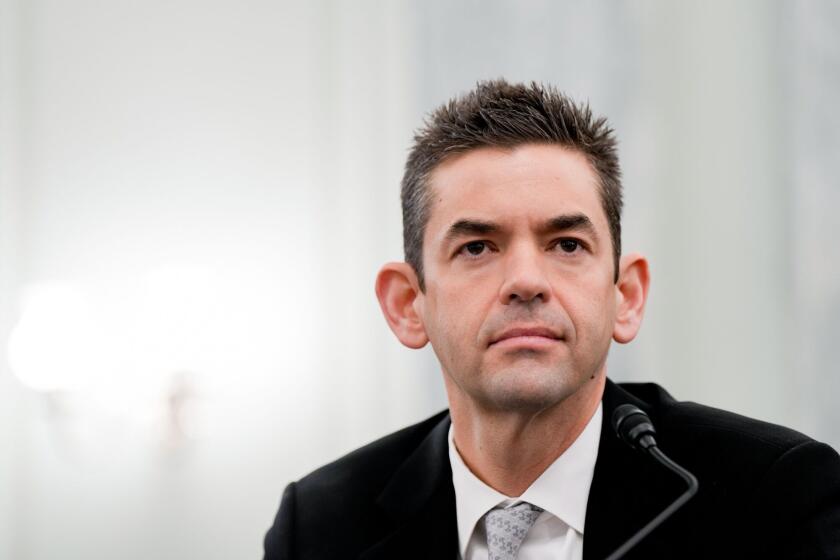Parents’ Role in Children’s Health : A Positive Attitude Helps the Sickly Adjust Quickly
- Share via
WASHINGTON — More and more babies--the premature, the injured, the acutely ill--are being saved by medical science. More and more the parents who live for weeks under the imminent threat of a child’s death wake up one day and, almost out of the blue, it seems, are told the baby is well. Time to go home. But are these youngsters really all well? And, more to the point, do the parents believe it?
“Parents play an enormous role demonstrating to a child how well they regard him or her,” says Dr. Peter A. Gorski, pediatrician and child development specialist at Mt. Zion Hospital and Medical Center in San Francisco, “so it should be clear--clearer than it is to most physicians--that the way parents see the fragility or vulnerability of the child to outside risks will be transferred to the child. And this, unfortunately, too often results in a child wrongly believing himself to be less competent--physically, mentally, psychologically and socially--than is the case.”
He talks about a mother who demanded that her family doctor send a note to her son’s gym teacher excusing the healthy 18-year-old, 250-pound bruiser from playing football. “But why?” the doctor asked. “Don’t you remember?” she replied. “He was a preemie.”
Gorski is one of a growing number of pediatricians who are learning that it is not enough to save the lives of these threatened babies and then follow up only on their physical problems. Specialists are finding that the learning and social skills the normal baby picks up during infancy may be missed in the group of children called “medically vulnerable” and may cause more serious problems later on--in school and in peer relationships. But the specialists are also finding that proper and timely intervention with families can often prevent or ameliorate these problems.
“The way we deliver health care services can change the whole psychological environment,” says Dr. Ruth Stein, a New York pediatrician and professor of pediatrics at the Albert Einstein Medical Center.
Good Deal of Evidence “We’re beginning to see more children surviving illnesses that might have earlier limited life expectancy, and now there is a good deal of evidence that the psychological and social disability that comes with not having normal childhood experiences may be worse than the illness itself.”
Stein is part of a Bronx study in which families with chronically ill children were assigned a nurse practitioner and general pediatrician to serve as liaison with any subspecialists--neurologists, for example--during acute stages.
“We were able to demonstrate beneficial effects,” she says, “on both child and mother” compared with similar families where no such liaison existed. So “it appears that we could be doing preventive things that would help foster better psychological and social development.”
A rapidly growing self-help movement is also offering assistance. Lenette Moses, co-president of a Philadelphia-based group called Intensive Caring Unlimited, recalls that “homecoming is second in trauma only to the first visit to the intensive care nursery.”
Her son, now 4 1/2, was born 12 weeks premature. He had a litany of problems--hydrocephalus, brain hemorrhages, meningitis, a heart defect, sepsis, respiratory distress and an eye condition common to preemies. Today he is essentially healthy with some mild developmental problems that have been identified and are being treated by specialists. But before Moses, a writer, got from there to here, she had seen the “tons of equipment attached to ounces of humanity” and had existed from hour to hour as her son’s condition improved in minuscule increments.
‘At a Total Loss’ Then, when she took “this tiny baby” home, she felt “very alone, very frightened and at a total loss for information.” Her response was to learn all she could about his condition and what she might expect at home. One of the results was the formation of Intensive Caring.
“If the parent is anxious,” Moses says, “the baby will pick it up and the parent gets worse and the baby gets worse. It’s a classic vicious cycle we need to break.”
Says Gorski: “The syndrome of imagined vulnerability most often is induced by the medical professional who fails to indicate signs of recovery while they are occurring and to ask the parents their perceptions of the changes. . . . Any family, no matter how wealthy and stable, will feel stressed with a child with medical problems. So support for the family will also benefit the child.”
Hints from parents of once-fragile children:
Don’t be afraid to assert yourself with health-care givers, and pursue answers if they are not clear.
Become part of the care-giving “team.”
Hints to physicians treating fragile children:
Use the parents as acute observers of their own children.
Praise parents for good care rather than just criticizing or lecturing.
Teach parents how to meet the child’s medical needs without treating the child as a piece of fragile glass.
New York pediatrician Ruth Stein warns that her colleagues “tend to focus on disabled parts instead of things that could be fostered--innate talents, for example.”
For more information: Parents of Premature and High Risk Infants, 33 West 42nd St., New York, N.Y. 10036, or National Center for Clinical Infant Programs, 733 15th St. NW, Suite 912, Washington, D.C. 20005.




